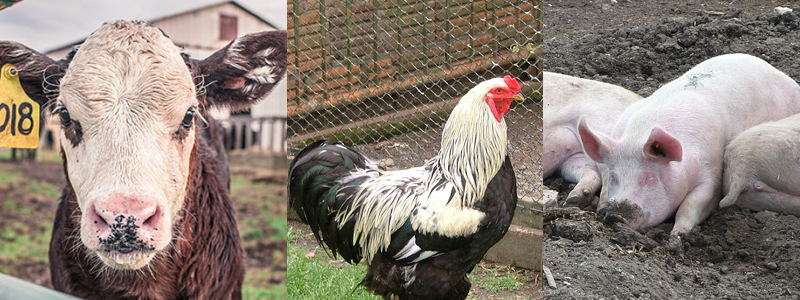If you find the laws surrounding use of compounded drugs in your clinic confusing, you aren’t alone. “There is a lot of confusion, especially in states such as Missouri and Kansas,” says Kate Tormey, Assistant Director of State Advocacy for the AVMA. “Because there really is no clear federal law on compounding, states have taken it upon themselves to create these laws, because they license pharmacists and veterinarians. When it comes down to what a veterinarian can and can’t do, it really comes down to the opinion of the state veterinary board.”
Dr. Ashley Morgan, Assistant Director for the AVMA’s Governmental Relations, Division, says the only thing clearly spelled out in federal law is that a veterinarian, under certain provisions of the Animal Medicinal Drug Use Clarification Act passed in 1994, can use FDA-approved drug products in an extra-label fashion. “The FDA does say that veterinarians and pharmacists can take FDA-approved drug products and change the formulation, so you can compound using those products to make a solution, an injectable, a cream, whatever it is that a veterinarian might need and is pharmacologically possible. As far as keeping it in stock, that varies by state.”
Under Missouri law, pharmacies can only sell compounded drug products to practitioners administering those drugs to an individual patient with a prescription, and only within the walls of their clinics. “In other words,” says Tormey, “if a rabbit comes in with some sort of medical issue and is receiving compounded medication in the clinic, the veterinarian would not be able to send the client home with medication to treat the rabbit at home. The rabbit would probably just have to stay in the clinic until that course of medication was completed, or until the pharmacy could dispense a patient-specific prescription to the client.”
Missouri law goes on to say drugs can be compounded by a pharmacy without a prescription in limited quantities, defined as a three-month supply of a batched product or one-year supply of compounded product, and only if there is an established history of receiving or filling valid prescriptions with the patient receiving the medication. Pharmacies cannot sell or dispense compounded products to practitioners for office use without the above criteria being met. Doing so can result in the revocation or suspension of the pharmacy’s license. It’s also important to note, Missouri law says compounding for office use may constitute manufacturing under federal law, which would require a Missouri drug distributor license. It is also illegal to create compounds that copy already-available drugs approved by the FDA.
On the Kansas side, veterinarians have even less guidance. “The AVMA has not found any mention of what veterinarians can and can’t do in terms of maintaining office stock or dispensing from that office stock,” says Tormey. Kansas state law states, “Nothing contained in the pharmacy act of the state of Kansas shall prohibit any duly licensed practitioner from purchasing and keeping drugs, from compounding prescriptions or from administering, supplying or dispensing to such practitioner’s patients such drugs as may be fit, proper and necessary.” According to Jim Kinderknecht, an inspector for the Kansas Board of Pharmacy, veterinarians are included in the definition of practitioner. The law goes on to say a pharmacist is required to be in charge of compounding, filling and refilling prescriptions.
Regardless of where you practice, it is currently illegal by the FDA to compound animal medications from bulk drug substances. But in May 2015, the FDA proposed a new guidance outlining specific conditions under which the agency generally would not intend to take action when medications were compounded for animals from bulk drug substances. The draft guidance would allow for the limited use of compounding of animal drugs from bulk drug substances when there is no approved drug that can be used or modified through compounding to treat a particular animal with a particular condition. The FDA is currently considering comments received regarding the draft guidance. “AVMA did comment on those,” says Dr. Morgan, “and our position is that veterinarians should be able to maintain compounded preparations in their clinic for urgent and emergent needs.” The FDA is also compiling a list of bulk drug substances that certain federally registered facilities could use to compound medications for veterinary office use under specified conditions; this list would be updated on a rolling basis. There is no timeline for finalizing the draft guidance. Even when finalized, Dr. Morgan cautions veterinarians that the guidance will not be law, that compounding from bulk drug substances will still be considered illegal by the FDA.
Dr. Morgan says ultimately, it falls to veterinarians to educate themselves about what they’re obtaining, prescribing or having dispensed to their patient. “Talk to the pharmacy you are using for the compounding, just so as a prescriber you know whether they are using the FDA-approved drug product or the bulk drug substance,” she recommends. Dr. Morgan also cautions veterinarians to know the difference between an FDA-approved drug product and a compounded medication. “The pharmacy or veterinarian, even if they use the FDA-approved drug product, has in some way altered that medication, and it isn’t necessarily going to work in the way it should. There’s a liability for veterinarians when they are prescribing something that is not in accordance with the label. That’s true even when using the approved product without making changes, but for a different condition or species. We want to remind veterinarians when you use these substances, you should be having conversations with your clients about the additional risks.”











